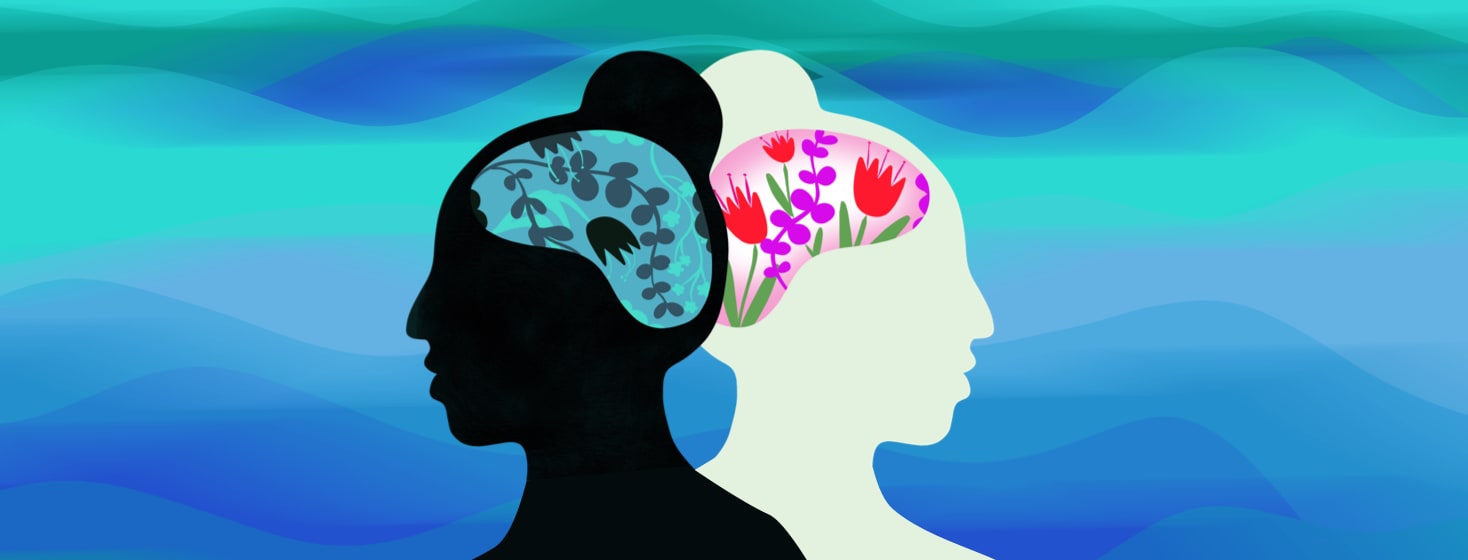Let’s Talk About Mental Health
How do you find yourself managing your mental health on a day-to-day basis? Please join the conversation. Below are comments from SpinalMuscularAtrophy.net community members on how their own life with SMA has impacted their mental health, plus ways for you to share your thoughts.
Overwhelmed by all the emotions
"The best way I can describe living with a chronic disease like SMA is that I am a cellphone, and my disease is all of the open windows in the background. However, as the person with SMA, those windows are draining my battery, affecting both my mental and physical health on a daily basis. The open windows include pain, grief, anxiety, depression, burnout, fatigue, stress, and medical trauma, just to name a few." – from Mental Health with SMA – A Cellphone Analogy, by Health Leader Samantha Przybylski
Feeling guilty and trying to make others feel okay
"I’ve always tried to make everyone around me feel okay about my disability. I can’t say I’ve always been perfect at this, but I have done a pretty good job. I’ve never wanted anyone to feel bad for me. The part where I struggle is the guilt I have over others helping me.” – from Dealing With Guilt, by Health Leader Mike Noon
Featured Forum
View all responsesThe pain of losing friends from SMA
"My SMA community was struck hard this winter season by a string of deaths. Blow by blow it broke me. My friend Kim was the worst blow by far. In February of this year, Kim passed away at the age of 38, and I became the last living of my 'Cabin C girls' group from MDA camp. You can imagine how hard it was for me when she passed away. It crushed me because once again in my life, I felt alone and fragile and mortal – only this time it wasn’t just another one of 'my girls in Cabin C' leaving me, it was the last of them – I really am alone now from my small circle of friends at MDA camp." – from Loss in the SMA Community, by Health Leader Allie Williams
Trying to make myself heard
"My biggest insecurity is not having people be able to hear me, which in turn makes my confidence go low. Since I struggled with fear of not being heard, I never really spoke my truth aside from online. I push myself to say what is on my mind because it's important! I've learned that you have to say it, because if you bury it deep down, you end up killing yourself mentally."– from Courage, by Health Leader Kellie Cusack
Taking care of myself
"There came a time when I found myself not feeling my best, content, or motivated. I was not feeling good about myself. It’s because I was lacking in proper, adequate care for myself. I started seeing a counselor. I came to grips with the fact that that’s okay. A lot of people don't think it is even now, with there being such a stigma around it. But for me, it became necessary. I started expressing concerns about a life I have with a disability." – from Creating a Self Care Routine, by Health Leader Megan DeGarnett
Featured Forum
View all responsesWhen people say upsetting things
"Take a moment and pause. When I hear something upset me I will take a moment to calm myself. They say time heals everything. It can if you know how to calm down by yourself. Take a deep breath and allow time to pass before responding to the person/question." – from Feeling Emotional About Things People Say, by Health Leader Ainaa Farhanah
Mental health in the age of social media
"On those days when I'm in the mental health trenches, it's a different story. It stings. I'm sitting in my wheelchair, wondering why I'm not the one at the pumpkin patch with my toddler or shouting about being engaged or moving somewhere cool with my bestie. It’s a hard difficult pill to swallow seeing daily how your life hasn’t turned out how you hoped it would have, at no fault of your own." – from Social Media and Mental Health, by Health Leader Jennifer Greer

Join the conversation